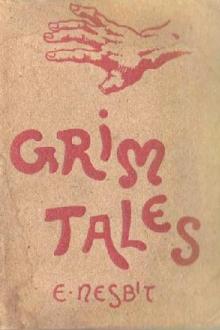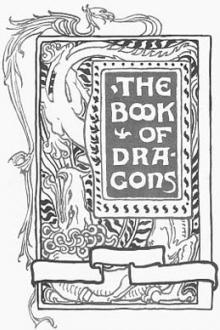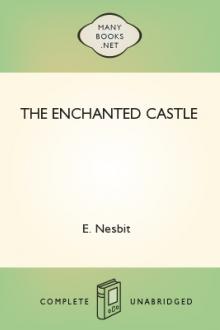author - "E. Nesbit"

He was waiting for her, he had been waiting an hour and a half in a dusty suburban lane, with a row of big elms on one side and some eligible building sites on the other--and far away to the south-west the twinkling yellow lights of the Crystal Palace. It was not quite like a country lane, for it had a pavement and lamp-posts, but it was not a bad place for a meeting all the same: and farther up, towards the cemetery, it was really quite rural, and almost pretty, especially in twilight. But

nough to tease.'Look here,' said Anthea. 'Let's have a palaver.' This worddated from the awful day when Cyril had carelessly wished thatthere were Red Indians in England--and there had been. The wordbrought back memories of last summer holidays and everyonegroaned; they thought of the white house with the beautifultangled garden--late roses, asters, marigold, sweet mignonette,and feathery asparagus--of the wilderness which someone had oncemeant to make into an orchard, but which was now, as

ly a screw went mad, And then the boiler burst!With gloomy face he picked it up And took it to his Mother, Though even he could not suppose That she could make another; For those who perished on the line He did not seem to care, His engine being more to him Than all the people there. And now you see the reason why Our Peter has been ill: He soothes his soul with pigeon-pie His gnawing grief to kill. He wraps himself in blankets warm And sleeps in bed till late, Determined thus to overcome His

up all these years to get his crown, and everything!"And wise people shook their heads and foretold a decline in the National Love of Sport. And, indeed, soccer was not at all popular for some time afterward. Lionel did his best to be a good King during the week, and the people were beginning to forgive him for letting the Dragon out of the book. "After all," they said, "soccer is a dangerous game, and perhaps it is wise to discourage it." Popular opinion held that the

h all fringed with ferns and creepers. They passed through the arch into a deep, narrow gully whose banks were of stones, moss-covered; and in the crannies grew more ferns and long grasses. Trees growing on the top of the bank arched across, and the sunlight came through in changing patches of brightness, turning the gully to a roofed corridor of goldy-green. The path, which was of greeny-grey flagstones where heaps of leaves had drifted, sloped steeply down, and at the end of it was another

picture, and gazed into those grey-green eyes till tears of passionate happiness filled my own."Oh! my dear, my dear, how shall I pass the hours till I hold you again?" No thought, then, of my whole life's completion and consummation being a dream. I staggered up to my room, fell across my bed, and slept heavily and dreamlessly. When I awoke it was high noon. Mildred and her mother were coming to lunch. I remembered, at one o'clock, Mildred coming and her existence. Now indeed the

Description The Railway Children is Edith Nesbit’s most well-known and well-loved book for young readers. Since its first book publication in 1906, it has been made into movies, radio plays and television series several times, dramatised in the theatre, performed in actual railway stations, and even turned into a musical. It tells the story of three children: Roberta, Peter and Phyllis, who with their mother are forced to leave their comfortable suburban home and go to live in a small cottage

Description The Enchanted Castle is a novel for young readers by Edith Nesbit, who was writing in the late Victorian and early Edwardian era in Britain. As in her other children’s books, it begins in the everyday world but quickly brings in the fantastical and magical. A large part of the delight of Nesbit’s books is that her children behave in quite ordinary ways, getting into scrapes, getting dirty and their clothes torn, making decisions which seem right to them at the time but which are

Description Harding’s Luck, published in 1909, is the sequel to The House of Arden by E. Nesbit. Rather darker and more serious in tone than the previous book, this novel is set in England’s Edwardian era, when there was no government-supported welfare and the poor still sometimes starved to death. It centers on young Dickie Harding, a poor, lame orphan boy who is enticed to run away with a disreputable tramp, Mr. Beale. Beale intends to use him to help carry out burglaries (a plot device not

Description Edith Nesbit was a popular children’s author of the late Victorian and early Edwardian eras in Britain. Though she was writing more than a century ago, her books nevertheless remain popular and are generally still in print. The House of Arden was published in 1908. Like her other, perhaps better known tales, such as Five Children and It , the story takes quite ordinary children of the time and plunges them into fantastical adventures. In this book, two children, with the interesting

He was waiting for her, he had been waiting an hour and a half in a dusty suburban lane, with a row of big elms on one side and some eligible building sites on the other--and far away to the south-west the twinkling yellow lights of the Crystal Palace. It was not quite like a country lane, for it had a pavement and lamp-posts, but it was not a bad place for a meeting all the same: and farther up, towards the cemetery, it was really quite rural, and almost pretty, especially in twilight. But

nough to tease.'Look here,' said Anthea. 'Let's have a palaver.' This worddated from the awful day when Cyril had carelessly wished thatthere were Red Indians in England--and there had been. The wordbrought back memories of last summer holidays and everyonegroaned; they thought of the white house with the beautifultangled garden--late roses, asters, marigold, sweet mignonette,and feathery asparagus--of the wilderness which someone had oncemeant to make into an orchard, but which was now, as

ly a screw went mad, And then the boiler burst!With gloomy face he picked it up And took it to his Mother, Though even he could not suppose That she could make another; For those who perished on the line He did not seem to care, His engine being more to him Than all the people there. And now you see the reason why Our Peter has been ill: He soothes his soul with pigeon-pie His gnawing grief to kill. He wraps himself in blankets warm And sleeps in bed till late, Determined thus to overcome His

up all these years to get his crown, and everything!"And wise people shook their heads and foretold a decline in the National Love of Sport. And, indeed, soccer was not at all popular for some time afterward. Lionel did his best to be a good King during the week, and the people were beginning to forgive him for letting the Dragon out of the book. "After all," they said, "soccer is a dangerous game, and perhaps it is wise to discourage it." Popular opinion held that the

h all fringed with ferns and creepers. They passed through the arch into a deep, narrow gully whose banks were of stones, moss-covered; and in the crannies grew more ferns and long grasses. Trees growing on the top of the bank arched across, and the sunlight came through in changing patches of brightness, turning the gully to a roofed corridor of goldy-green. The path, which was of greeny-grey flagstones where heaps of leaves had drifted, sloped steeply down, and at the end of it was another

picture, and gazed into those grey-green eyes till tears of passionate happiness filled my own."Oh! my dear, my dear, how shall I pass the hours till I hold you again?" No thought, then, of my whole life's completion and consummation being a dream. I staggered up to my room, fell across my bed, and slept heavily and dreamlessly. When I awoke it was high noon. Mildred and her mother were coming to lunch. I remembered, at one o'clock, Mildred coming and her existence. Now indeed the

Description The Railway Children is Edith Nesbit’s most well-known and well-loved book for young readers. Since its first book publication in 1906, it has been made into movies, radio plays and television series several times, dramatised in the theatre, performed in actual railway stations, and even turned into a musical. It tells the story of three children: Roberta, Peter and Phyllis, who with their mother are forced to leave their comfortable suburban home and go to live in a small cottage

Description The Enchanted Castle is a novel for young readers by Edith Nesbit, who was writing in the late Victorian and early Edwardian era in Britain. As in her other children’s books, it begins in the everyday world but quickly brings in the fantastical and magical. A large part of the delight of Nesbit’s books is that her children behave in quite ordinary ways, getting into scrapes, getting dirty and their clothes torn, making decisions which seem right to them at the time but which are

Description Harding’s Luck, published in 1909, is the sequel to The House of Arden by E. Nesbit. Rather darker and more serious in tone than the previous book, this novel is set in England’s Edwardian era, when there was no government-supported welfare and the poor still sometimes starved to death. It centers on young Dickie Harding, a poor, lame orphan boy who is enticed to run away with a disreputable tramp, Mr. Beale. Beale intends to use him to help carry out burglaries (a plot device not

Description Edith Nesbit was a popular children’s author of the late Victorian and early Edwardian eras in Britain. Though she was writing more than a century ago, her books nevertheless remain popular and are generally still in print. The House of Arden was published in 1908. Like her other, perhaps better known tales, such as Five Children and It , the story takes quite ordinary children of the time and plunges them into fantastical adventures. In this book, two children, with the interesting